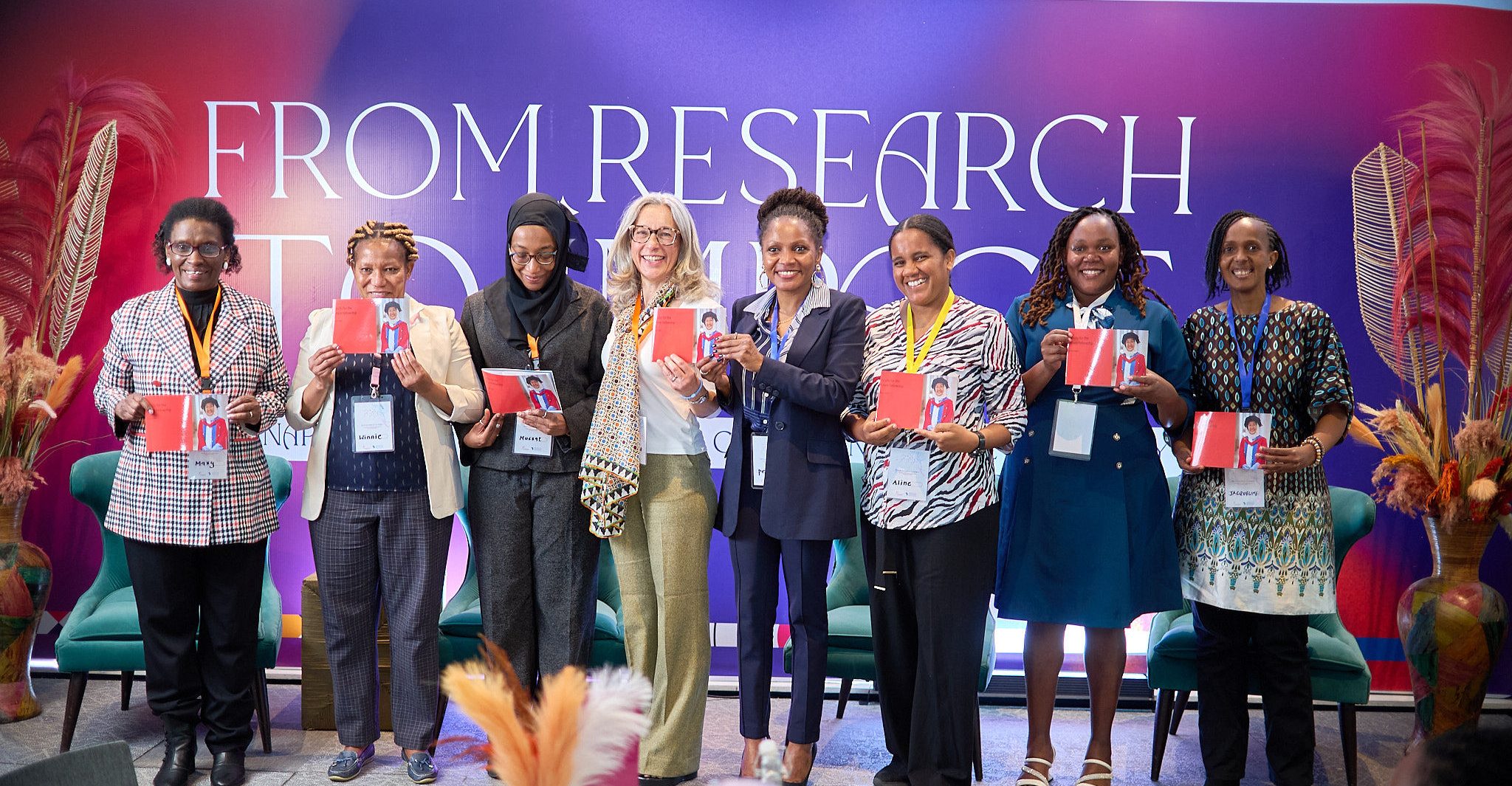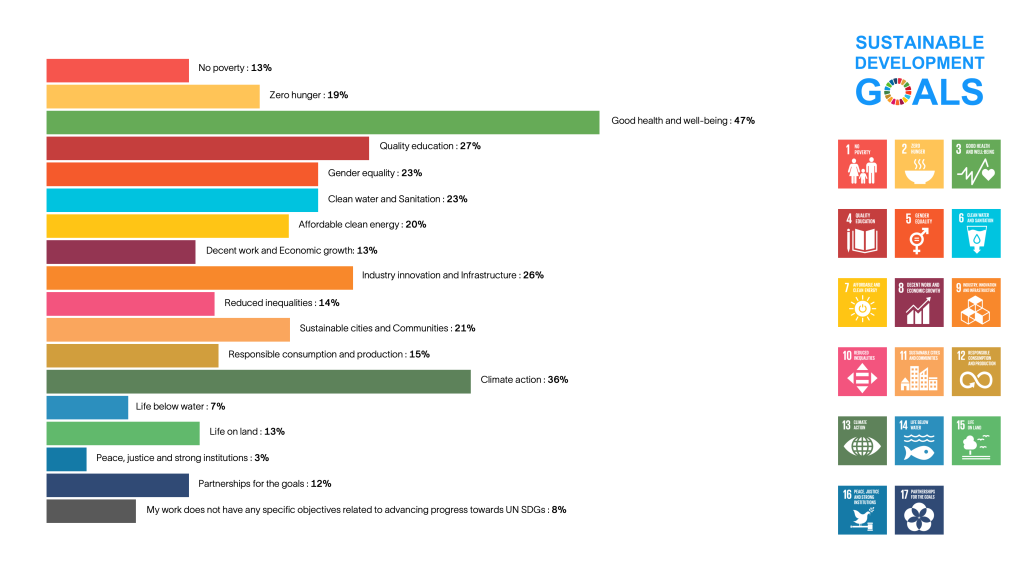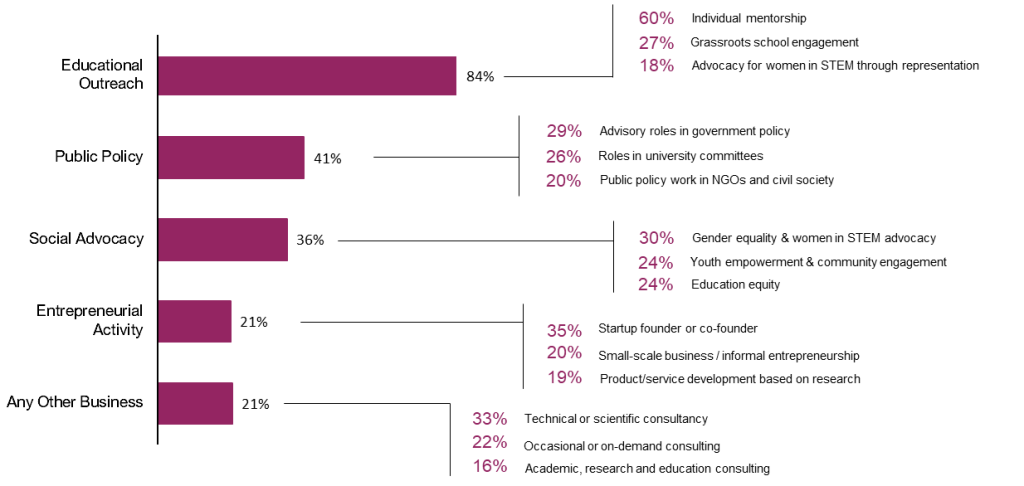
From Experts to Leaders – Faculty for the Future Impact Survey 2025
In 2005 the Schlumberger Foundation created the Faculty for the Future (FFTF) program, boosted by a philanthropic donation of $50m from global technology company, SLB. The program was designed to increase research capability in emerging economies by supporting talented female researchers in science and technology. Twenty years on the FFTF Fellowship now comprises 965 women across 95 countries: advancing knowledge, fostering innovation and contributing to sustainable development.
Today we publish the results of the Faculty for the Future Impact Survey 2025, a study commissioned to better understand who the women of the Fellowship are today, the impact of their work, the challenges they face and where they see future opportunities. The survey, conducted by impact measurement specialists 60 Decibels, captured responses from 45% of Fellows across a diverse mix of ages (22–62 years) and regions (Africa 59%, Asia 30%, Americas 9%, others 2%).
The findings revealed a Fellowship working with purpose on local and global priorities, with 92% of Fellows having specific objectives to advance progress in UN Sustainable Development Goals (SDG).

Q: Does your work have specific objective(s) to advance progress towards UN Sustainable Development goals and if so which ones? (n = 432)
Speaking at the report launch event in Nairobi, Kenya, Schlumberger Foundation President Capella Festa explained,
“The FFTF was created 20 years ago with the aim of closing gender gaps and building research capability in emerging economies, and the survey confirms that Fellows are academically active on a global scale. However, what we hadn’t expected was that we weren’t just building expertise, we were also creating leadership.”
“FFTF alumnae contribute their expertise across private, public and non-profit sectors through technical roles, leadership positions, and entrepreneurial ventures. Alumnae are highly active in educational outreach, public policy, social advocacy and entrepreneurship.”
Speaking at the FFTF Annual Forum in September, Dr. Tina Phiri Chanda, Copperbelt University, Zambia said,
“This is a game-changing survey. Having 76% of Fellows in academia who taught 83,000 students in 2024, supervised 400 projects and published over 600 research papers - this is long term impact, this is the wow. We are imparting knowledge and changing the trajectory of research and of our countries.”
Tonthoza Uganja, PhD candidate in Agroforestry at Bangor University and Founder of Sustainable Farming Solutions Malawi observed,
“As an entrepreneur, what I looked for in the report were the statistics on entrepreneurship. 21% of respondents consider themselves to be entrepreneurs – founders of start-ups, small businesses or offering products or services based on their research. This is extraordinary and I see it as an opportunity.”
“I come from a country that is the fourth poorest in the world. I come from a country that needs to be built. I come from a country where systems need to be changed. So looking at this as a person who is passionate about building from realities on the ground and putting science to work to develop solutions that actually work for people, I feel very, very encouraged.”

Q: What other activities are you engaged in beyond your paid employment or academic post you have told us about? (n = 432)
Dr. Eman Maali, Palestinian Research Fellow in Computer Science at Imperial College London commented,
“One thing that struck me is that 94% of Fellows said there were not really alternative sources of funding available to them. So we need to understand that the Schlumberger Foundation is providing a vital source of support for these Fellows. But we also need to see how we can all work to increase other sources of funding specifically for women in STEM.”
Some of the findings on gender gaps were also surprising. While many Fellows continue to face restricted research opportunities, family obligations, and gender-based discrimination, we found that the main disparities are not between countries but between disciplines. Gender imbalance was particularly pronounced in engineering, physical sciences and computer science and the 29% of respondents who noted that fewer than one in ten members of their faculties are women were substantially from these disciplines.
Capella Festa adds,
“This report has revealed the sheer brilliance of FFTF Fellows and the leadership they are showing in their communities and beyond. The FFTF Fellowship has developed into a movement where women are equipped with the tools to lead, innovate, and inspire; helping shape a sustainable and equitable future for all.”
View the full report HERE.
